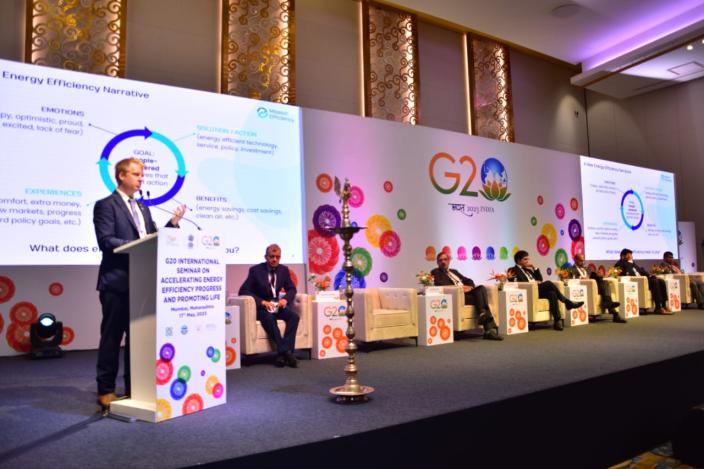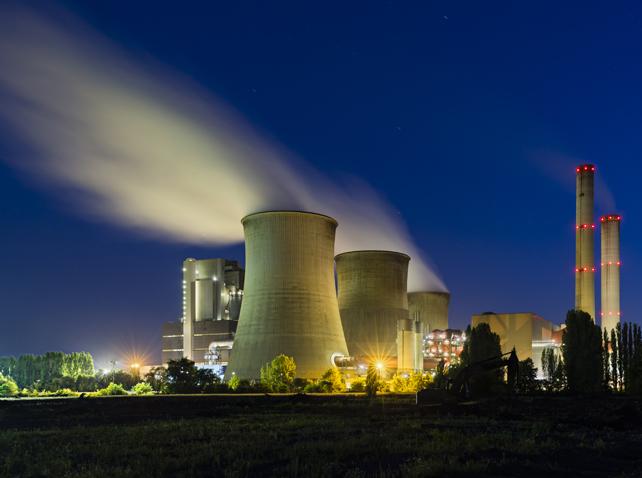Country work - India
India has established itself as a global leader across all pillars of the energy transition. Since 2000, the country has provided access to electricity to over 700 million people, resulting in nearly universal access. In parallel, India has also made substantial progress in clean cooking and energy efficiency, though further efforts are needed to address remaining gaps.
With the G20 Presidency in 2023, India showed its leadership by rallying G20 member countries to commit to a just and equitable energy transition, including the goals of tripling renewable energy capacity and doubling the rate of energy efficiency improvement by 2030.
SEforALL partnered in several initiatives established during India’s G20 Presidency, and we continue to engage with country partners on Energy Compacts, energy efficiency, and South-South cooperation.

35%
Share of renewable energy in total final energy consumption (2020)
76 bn $
Annual investments in energy end-use sectors needed in 2026-2030 to be on track with global net-zero by 2050.

Throughout 2023, we partnered with India’s Bureau of Energy Efficiency on strengthening energy efficiency commitments within G20 outcomes and using the G20’s platforms to advocate for energy efficiency more broadly. This work helped secure the G20 New Delhi’s Leader Declaration, which called for a doubling of annual energy efficiency, following a Voluntary Action Plan.

SEforALL, AEEE, and IEA prepared this study for India’s Bureau of Energy Efficiency and Ministry of Power to support the deliberations of the G20 Energy Transition Working Group. It presents opportunities to accelerate energy efficiency progress along five pillars: buildings, industry, transport, energy efficiency financing, and behavioural and lifestyle changes.

As a lead partner in the Mission Efficiency coalition, we are working on a wide set of initiatives to elevate, support and invest in energy efficiency in India. This includes efforts to build broad awareness of energy efficiency’s benefits, develop demand flexibility initiatives, and establish a marketplace for connecting efficiency projects with investors.

SEforALL is working with the Government of India to realize its voluntary commitments on energy access and efficiency detailed in its Energy Compact. We have also helped mobilize several other Energy Compact commitments from Indian organizations and municipal governments.

India is a key partner for sharing expertise on renewable energy manufacturing and critical minerals development with our various country partners in Africa. In May 2024, SEforALL, the Global Alliance for People and the Planet and WRI India organized a South-South exchange session between India and Nigeria to guide Nigeria’s journey toward electric bus adoption.
Why is our work in India important?
India is a powerhouse of clean energy solutions and a leader in energy efficiency. From 2015 to 2020, India reduced its energy intensity by an average of 2.3% per year, outpacing the global average. However, this falls short of the global improvements rates needed until 2030 to achieve SDG 7.3 (3.4%) and global Net-Zero by 2050 (4%).
Further expediting energy efficiency improvements is essential for India to decarbonize its economy. With electricity demand expected to reach 260 GW this year, a 7% increase from 2023, India is also pursuing an ambitious goal of integrating 500 GW of renewable capacity by 2030. Meeting these demands will require increased efficiency in end-use sectors and demand flexibility to ensure a low-carbon, reliable power supply.
Enhancing energy efficiency delivers widespread benefits for people. It provides higher comfort within households, boosts competitiveness for businesses, makes cities more livable with cleaner transport and better air quality, and ensures more power for essential services like hospitals and schools.
